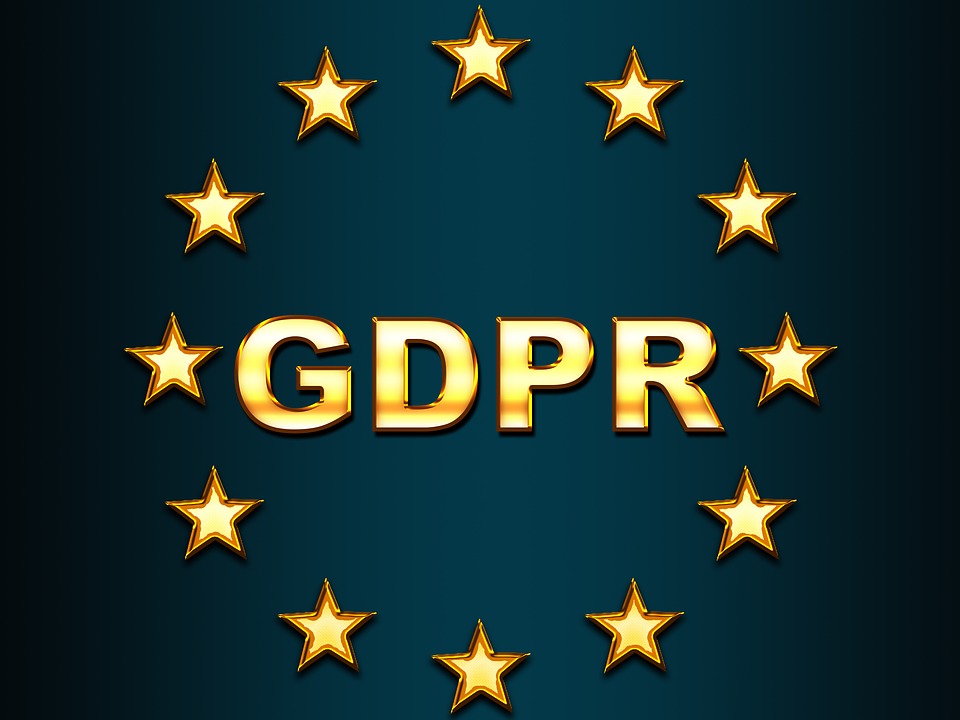Your data is worth a lot and companies like us are keen on gathering it. Either for marketing purposes or for our own insights and improvements of our product (and just so you know: we don’t sell your data!). From the moment that Chordify came into the world, we saved our users’ data. Read below how, why and for what. Spoiler alert: you can have your data deleted whenever you feel it is necessary. It belongs to you and we respect that.

Chordify – i.e. we processes personal data of its members, prospects and other contacts. Sounds a bit formal, don’t you think? This is the language that is used by lawyers and legislators, and it is the language in which we have immersed ourselves in for months in order to comply with the new European regulation, which is called General Data Protection Regulation(GDPR). And while we were at it we also renewed our terms and conditions, so they are coherent with the new privacy policy. Check them out here.
Privacy and security
From the very beginning of Chordify, we have been storing general data and personal data. We’ve always been committed to privacy and data security. And we will continue to do so, to help every Chordify user as good as possible and to keep achieving our goals. We love that you, our users, have more rights than you think. It’s a good thing that a regulation as the GDPR has finally been approved and we welcome it!
In our privacy statement we explain, as comprehensively as possible, why and how we process your personal data. We don’t have a data protection officer, but we’ll help you personally if you have any questions. You can contact us about this at privacy@chordify.net.
What personal data do we process about you?
Now you might be wondering what you’ve given away to us while using our platform. Well, some basic information like your first and last name, and the e-mail address you’ve shared with us. The same goes for your profile information and profile picture.

Your participation details linked to events, memberships and/or (win) actions are also stored with us. As well as your areas of interest (e.g. ‘guitar’ or ‘beginner’), contact history, IP address, social ID, cookie ID (you can read more about cookies in our cookie statement) and usage behaviour.
Why do we process these personal data?
That’s quite a bit of info if you read it out loud. Now, of course, you want to know why we collect your data, we know we would if we were you. We process personal data because we are legally obliged to do so. This mainly concerns data that is necessary for our (financial) administration; to comply with our tax obligations. Another reason is to keep track of our members administration and services.
In our membership records we keep track of which persons are members of Chordify. We store various personal details of contacts in order to perform our services as optimally as possible. But also to reach you with information, interesting content, promotions and market research. We do this via email and social media channels such as Twitter, LinkedIn, Instagram and Facebook.
You can sign up with us for different types of newsletters. Sometimes personalized and sometimes not. If you no longer wish to receive newsletters, you can unsubscribe via mail and in your account settings you can indicate preferences for the types of newsletters you wish to receive.
Even more reasons to use your personal data
Chordify is a growing company that anticipates the market. That’s why we are constantly recruiting new members, (industry) partners, musicians, music teachers and sometimes new colleagues. In order to maintain contact with everyone, we also process their personal details and areas of interest.
For Chordify, and Chordify related campaigns, we also process your data. For example IP address, cookie ID, social ID and/or surfing behaviour. We do this in order to be able to provide the most relevant advertisement to the right crowd. Since our service is partly free of charge, we benefit from placing advertisements. This way we can ensure that all our users can enjoy our services equally well, whether they are paying or not. It’s a small price to pay.
We also use ‘adapted target groups’ for Chordify (and for Chordify related campaigns) via social media platforms. We do this via Facebook, Twitter and via LinkedIn targeting. Personalized ads can be displayed on these platforms. We will not pass-on any personal data to third parties for this purpose, unless you have given us your unambiguous consent to do so.
Improvement of Chordify services
In order to improve our services, we also keep personal records. For example, we log click behaviour on the website in order to analyse which songs are played most of the time and which articles are read most frequently. We also keep track of how often our users open the newsletters. This way we measure the relevance of the newsletters.
And of course, Chordify must look fun and vibrant. Your information helps us to accomplish this. We process two types of special personal data. Namely gender and pictures. We process gender in order to be able to approach you in a more personal manner.
We process photos to add atmosphere to our content, including your personal profile. These processing operations are always voluntary and are not (of course) used for other purposes. If you have any questions, we would like to hear from you!
You have the power
So, now you know why and how we’re using your personal data. Of course you have the right to just say ‘no’ to us. We totally understand, this is your personal information and you don’t have to share it with Chordify or anyone else. You have the right to do so, but wait, there’s more…
You are always entitled to access the information we have about you. If there is anything wrong, we will rectify it. You can always delete data that you have stored with us yourself. Remember that it takes seven days before your profile is actually deleted. That has to do with administrative matters and in case you still have to think about it.
Removing your data
If you request to have your data removed, we will ask you to specify as much as possible what personal data you’d like us to remove. We will respond to your request within four weeks.
In the case of a removal request we will delete the data that concerns you as soon as possible, unless the law requires us to to save certain data, or if there are other urgent reasons to resist removal of data.
After fulfilling your request we will send you a confirmation. If some data was not removed we will send you a message explaining why we couldn’t (fully) execute your request.
If we are unable to establish fully what data your request is concerning, we will ask to send us a more precise specification. We will delay your request until you have specified what data you would like to remove.
Caution!
The contributions you create for the Chordify community (such as: chord edits, name changes, tags and your own set of lists, etc.) will not be automatically deleted. Of course we do make sure that your contributions are anonymized and that they are not directly traceable to you.
In order to continue to guarantee Chordify’s operation, we store so-called log data on our servers. No matter how good our programmers are, it is difficult to guarantee that all personal data will disappear from them. After a maximum of three months we throw this log data away and only then are all pieces of personal data really removed from Chordify.
Caution! What hardly anyone tells you is that it’s an illusion that really all your data has been removed from the internet with a single push of a button. There are many services on the internet that copy data, so you may be able to find your public Chordify profile somewhere on the internet forever.
Some final thoughts
As you can see, everyone has rights thanks to the GDPR. We work hard to comply with these as best as we can. Do you have any tips or remarks? Then let us know! To execute your rights, please contact us at privacy@chordify.net.
Do you think we are not acting in accordance with privacy laws? Then, of course, we would like to hear that. You can also submit a complaint about this to the Authority for Personal Data (AP) after 25 May 2018. At the moment, you can only tip the AP using this form.